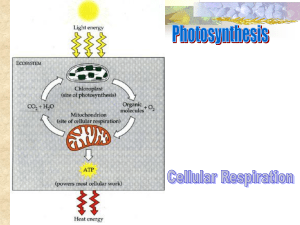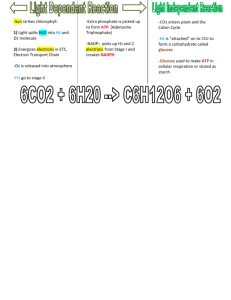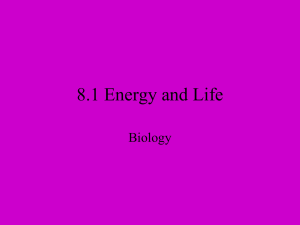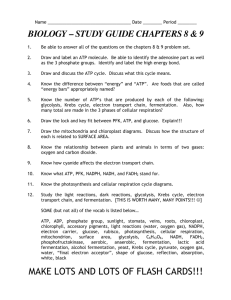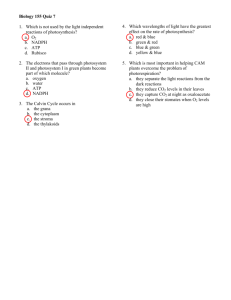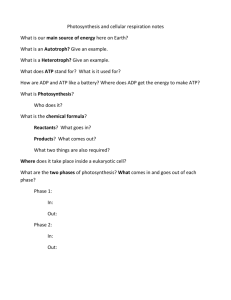4.0 – Cell Energy Student Sheet
advertisement
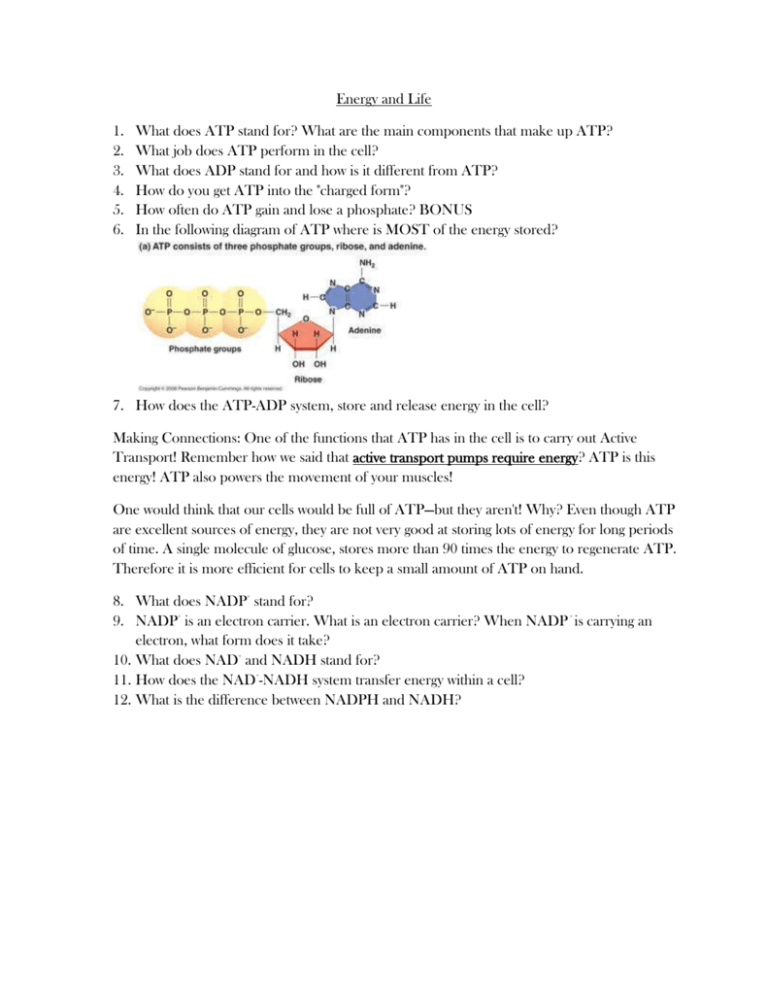
Energy and Life 1. 2. 3. 4. 5. 6. What does ATP stand for? What are the main components that make up ATP? What job does ATP perform in the cell? What does ADP stand for and how is it different from ATP? How do you get ATP into the "charged form"? How often do ATP gain and lose a phosphate? BONUS In the following diagram of ATP where is MOST of the energy stored? 7. How does the ATP-ADP system, store and release energy in the cell? Making Connections: One of the functions that ATP has in the cell is to carry out Active Transport! Remember how we said that active transport pumps require energy? ATP is this energy! ATP also powers the movement of your muscles! One would think that our cells would be full of ATP—but they aren't! Why? Even though ATP are excellent sources of energy, they are not very good at storing lots of energy for long periods of time. A single molecule of glucose, stores more than 90 times the energy to regenerate ATP. Therefore it is more efficient for cells to keep a small amount of ATP on hand. 8. What does NADP+ stand for? 9. NADP+ is an electron carrier. What is an electron carrier? When NADP + is carrying an electron, what form does it take? 10. What does NAD+ and NADH stand for? 11. How does the NAD+-NADH system transfer energy within a cell? 12. What is the difference between NADPH and NADH?
